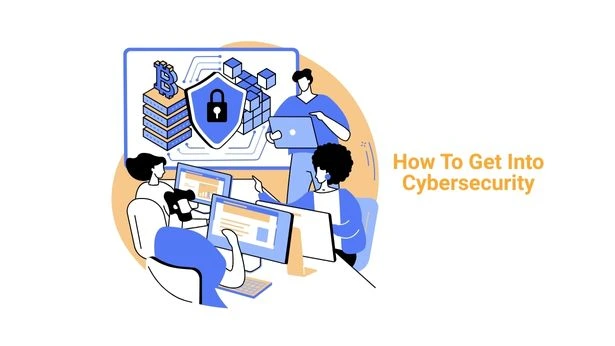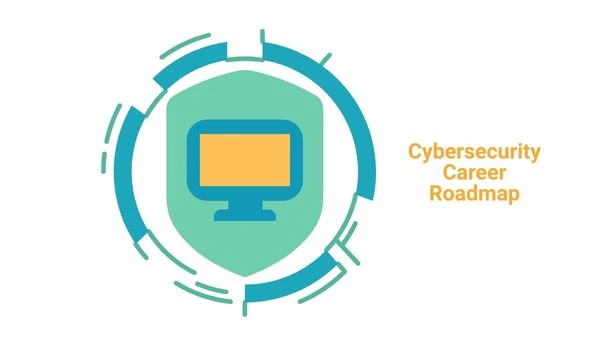How to Start a Career in Cybersecurity
If you are thinking about how to start a career in cybersecurity, then you are getting ready to enter one of the fastest-growing and important fields in technology today. Cyber threats continue to be more complex and more prevalent than ever before. Organizations, both public and private, are investing heavily in cybersecurity professionals.
This blog will provide an overview of the cybersecurity career path, the required skills for cybersecurity, cybersecurity certifications for beginners, and specific plans on how to become a cybersecurity professional.
Understanding How to Start a Career in Cybersecurity

An entry-level career in cybersecurity requires a combination of foundational concepts, experience, and lifelong learning. With a little motivation, the process is not as outrageous as it may initially seem!
1. Get Grounded in IT: As an aspiring cybersecurity professional, you must first gain an understanding of general IT concepts, including networking, system administration, and operating systems. Elements such as TCP/IP, DNS, firewalls, and proxy servers will form the basis of your cybersecurity knowledge.
2. Get Familiar with Cybersecurity: Start with basic concepts such as threats, attack vectors, encryption, and security policies. Understanding the approach that hackers might take at a succinct, fundamental level and existing vulnerabilities in systems will create a grounding in a practical perspective.
3. Decide on Your Cybersecurity Focus: Cybersecurity encompasses not just “hacking” but also incident response, penetration testing, security analysis, governance, risk, and compliance (GRC), and so on. Get acquainted with and experiment with various specialties early in your career to see the aspects of cybersecurity that you’re more excited about.
Essential Skills Needed for Cybersecurity
To grow in cybersecurity, you must cultivate a blend of both hard and soft skills. Here are the required skills in cybersecurity:
Technical Skills:
Networking and Protocols: Understanding Networks and Protocols, including HTTP, FTP, TCP/IP, UDP, and details of network architecture.
Operating Systems: Experience with Windows, Linux, and Unix.
Programming and Scripting: Knowledge of programming and scripting languages, including Python, JavaScript, or Bash, will better enable you to automate tasks or analyze code.
Security Tools: Experience with different security tools, including Wireshark, Nmap, Metasploit, Snort, and SIEM technologies.
Cryptography: Understanding of encryption standards and protocols around secured communication.
Problem-Solving Skills:
Attention to Detail: A lack of meticulousness can have individual or organizational consequences. They could involve configuration or failings in inspecting logs or code, which could compromise security.
Communication Skills: Explaining technical issues to non-technical individuals and navigating a collaborative environment with others across various teams.
Cybersecurity Certifications for Beginners
Earning certifications can help you advance in your career and show employers you have knowledge. Here are 5 good cybersecurity certifications for beginners:
1. CompTIA Security+: CompTIA Security+ is recognized by the industry and covers basic concepts of cybersecurity, network security, and risk management, and is typically the first certification for new beginners.
2. Certified Ethical Hacker (CEH): Focuses on penetration testing techniques and allows ethical hackers to apply procedures and methodologies to identify system weaknesses.
3. Associate of the Certified Information Systems Security Professional (CISSP): Although the CISSP is at an advanced level with global recognition, the associate level allows beginners to prepare for the certification.
4. Cisco Certified CyberOps Associate: The Cisco Certified CyberOps Associate emphasizes skills related to cybersecurity operations centers (SOC), which include monitoring indicators of compromise and incident response.
5. (ISC)² Systems Security Certified Practitioner (SSCP): The (ISC² Systems Security Certified Practitioner (SSCP) is best for those who are somewhat familiar with IT and want to branch into a security administration aspect.
Obtaining any of these certifications will help you enhance your resume and give you the practical knowledge that you need for real job-related challenges.
Also Read: Most In-Demand Cyber Security Jobs
Step-by-Step Guide to the Cybersecurity Career Path

The cybersecurity career pathway has multiple entry points and growth opportunities. Typically, it would look like this with an entry-level role:
1. Entry-Level Roles: The entry-level positions are security analyst and junior penetration tester, and IT auditor. These roles provide hands-on experience in monitoring security systems, analyzing vulnerabilities, and reviewing incidents.
2. Mid-Level Roles: After entry-level experience, you would move into a mid-level position like security engineer, threat hunter, or cybersecurity consultant. When in a mid-level role, you’ll have responsibility for designing security systems, proactively identifying legitimate threats, and providing consultative advice.
3. Senior and Specialized Roles: When you have a large enough skill set, you can assume a more senior role, such as cybersecurity architect or chief information security officer (CISO), or continue with specialized areas such as malware analyst or digital forensics.
Cybersecurity career development is not strictly linear, as is the case in the corporate world. Each of us will pivot and move around in our careers, and the technology will change as we grow professionally.
Final Call over Cyber Security Career
Understanding how to start a cybersecurity career, as well as the cybersecurity career path, is critical for young professionals. By having cybersecurity skills, having cybersecurity certifications for new students, and having a plan to learn, you will be on your way to becoming a cybersecurity professional. Career opportunities are plentiful in this field, not to mention great salaries, as well as the chance to protect the digital world as a professional in this new, ever-increasingly connected time.
Ready to launch your cybersecurity career? Start by exploring beginner-friendly certifications and building your technical skills today. Partner with a trusted IT cybersecurity recruitment agency to find the best opportunities. Stay curious, keep learning, and take the first step towards becoming a cybersecurity expert. Contact Time Agency Group.
FAQs on Becoming a Cyber Security Expert
Q1. How can a person start a cybersecurity career without prior IT experience?
You can take IT fundamentals classes, earn entry-level credentials like CompTIA Security+, and gain practical experience through internships or labs.
Q2. What is the typical career path in cybersecurity?
A cybersecurity career typically starts as a security analyst, then moves to a security engineer, consultant, senior security engineer, and finally to a management role.
Q3. For a person new to cybersecurity, what skills are the most important?
As competencies for beginners, basic networking skills, understanding of operating systems (macOS, Linux, Windows), knowledge of security concepts, and some scripting skills are helpful.
Q4. What are the best entry-level cybersecurity certifications?
CompTIA Security+, Certified Ethical Hacker (CEH), and Cisco CyberOps Associate are excellent entry-level credentials.
Q5. How long does it take to become a cybersecurity expert?
It depends on the individual, but generally, about three to five years of education, certifications, and experience in a real-world environment.
Q6. Will you need a degree to become a cybersecurity expert?
Not really, but it helps. There are many successful individuals who are employed in cybersecurity without a degree and rely on certifications and experience alone.
Q7. Can I become a cybersecurity expert through self-study?
Absolutely, as long as you have the discipline to study on your own and access to resources that include online courses, labs, and community support.
Q8. Which industries hire cybersecurity experts?
Almost every industry requires cybersecurity professionals, from finance and healthcare to the government and tech companies.
Related Article: Why Cybersecurity is Your Next Big Career Move






